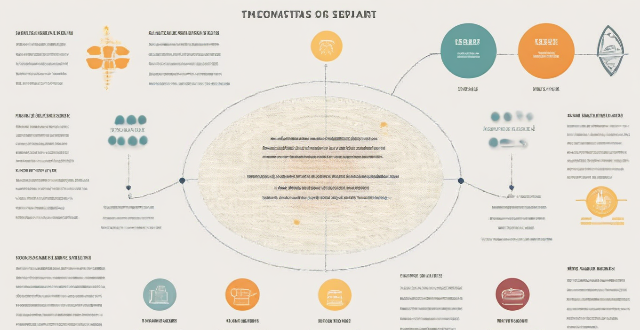Benefit Retirement

How can I maximize my retirement income from pension plans ?
The article provides strategies for maximizing retirement income from pension plans, including understanding the types of plans, optimizing contributions, investing wisely, taking advantage of tax benefits, and planning for retirement expenses. It emphasizes the importance of starting early, diversifying investments, and regularly monitoring and adjusting them. The article also highlights the benefits of tax-deferred growth and potential tax-free withdrawals. By following these strategies, individuals can help ensure a comfortable retirement with a steady stream of income from their pension plans.

What are some effective investment strategies for retirement planning ?
Retirement planning is a crucial aspect of financial planning, and it requires careful consideration of various investment strategies. Diversification helps reduce overall risk by spreading investments across different asset classes. Long-term investing takes advantage of compounding interest and allows for market fluctuations to even out over time. Dollar-cost averaging minimizes the impact of market volatility by investing a fixed amount regularly. Target-date funds offer a hands-off approach with automatic adjustments based on age and time horizon. Tax-advantaged accounts provide tax benefits that can help maximize retirement savings. By using these effective investment strategies, you can build a solid foundation for your retirement planning while minimizing risks and maximizing returns.

What are the tax implications of retirement accounts such as 401(k)s and IRAs ?
The text discusses the tax implications of retirement accounts, specifically 401(k)s and Individual Retirement Accounts (IRAs), highlighting their contribution rules, earnings treatment, withdrawal considerations, and overall tax strategies. Both types of accounts offer tax benefits to encourage retirement savings but differ in their contributions, earnings growth, and withdrawal rules. Understanding these differences is crucial for maximizing the benefits of retirement savings while minimizing tax liabilities.

How can I protect my retirement savings from inflation ?
Inflation can significantly erode the value of retirement savings over time. To protect your nest egg, consider diversifying your portfolio with stocks, real estate, and commodities. Investing in inflation-protected securities (TIPS) and fixed index annuities can also help maintain purchasing power. Global diversification, particularly in emerging markets, offers growth opportunities and hedges against local economic conditions. Maintaining a cash reserve for liquidity and short-term needs is crucial, as is regularly rebalancing your portfolio to stay on track with your goals. Delaying Social Security benefits can lead to higher monthly payments, acting as longevity insurance. Increasing contributions, especially if matched by employers, and working with a financial advisor for personalized guidance are other effective strategies. By employing these tactics, you can safeguard your retirement savings from inflation and ensure a comfortable retirement.

What are some good retirement investment options ?
The text discusses various retirement investment options including 401(k) plans, individual retirement accounts (IRAs), mutual funds, exchange-traded funds (ETFs), and real estate investment trusts (REITs). It explains the benefits and limitations of each option.

How do I choose the right financial product for my retirement plan ?
Retirement planning is crucial for a secure future, and choosing the right financial product is key. Assess your retirement goals, evaluate your risk tolerance, determine your time horizon, research available products like stocks, bonds, mutual funds, ETFs, real estate investments, and annuities, and seek professional advice to make informed decisions.

How do I plan for retirement and ensure financial security in my golden years ?
Planning for retirement is crucial and requires setting clear goals, saving early, investing wisely, planning for healthcare costs, considering downsizing or relocating, creating a retirement timeline, and having a contingency plan. This ensures financial security in your golden years.

Is it better to invest in stocks or bonds for retirement ?
The article discusses the advantages and disadvantages of investing in stocks and bonds for retirement. Stocks offer higher potential returns, diversification, and can serve as an inflation hedge, but come with higher risks and no guaranteed income. Bonds provide lower risk, predictable income streams, and diversification, but offer lower potential returns and are sensitive to interest rate changes. The key is finding the right balance between risk and reward based on individual circumstances and investment goals, and consulting with a financial advisor to create a customized retirement plan.

How do I start saving for retirement ?
Saving for retirement is a crucial aspect of financial planning. Here are some steps to start saving for your retirement: 1. Set a retirement goal based on factors like age, income, and expenses. 2. Create a budget that accounts for monthly expenses and income. 3. Start saving early to take advantage of compound interest. 4. Contribute regularly to a retirement account through automatic deposits. 5. Consider tax-advantaged accounts like 401(k)s and IRAs for tax benefits. 6. Invest wisely by diversifying your portfolio with stocks, bonds, and other assets. 7. Review your retirement plan regularly to stay on track and make adjustments as needed.

What is the best age to start retirement planning ?
Retirement planning is crucial for ensuring financial security and peace of mind in post-retirement life. The best age to start retirement planning varies depending on individual circumstances, but early adulthood (20-30 years old), mid-career (30-40 years old), and late career (40-50 years old) are all ideal times to begin. Early adulthood is advantageous due to the power of compound interest and habit formation. Mid-career offers higher income levels and family considerations. Late career allows for catch-up contributions and debt payoff strategies. Tips for successful retirement planning include creating a budget, building an emergency fund, diversifying investments, seeking professional advice, and staying informed on relevant changes.

How much money do I need to save for retirement ?
Planning for retirement is crucial to ensure a comfortable life after stopping work. The amount of money needed depends on factors like age, expected retirement age, lifestyle, and expenses. This guide helps calculate your retirement savings goal by determining your retirement age, assessing your financial situation, estimating retirement expenses, using retirement calculators, considering inflation and investment returns, and creating a savings plan. By doing so, you can work towards a comfortable and secure retirement.

What role does real estate play in a retirement portfolio ?
The text discusses the role of real estate in a retirement portfolio, highlighting its potential benefits such as income generation through rental income and appreciation, serving as an inflation hedge by maintaining its value during inflationary periods and allowing rent adjustments, and providing diversification by being a non-correlated asset class and an alternative investment. It also outlines risks associated with real estate investments, including liquidity risk due to the illiquid nature of properties, market risk due to fluctuating property values influenced by local market conditions, and management responsibilities that come with owning rental property. The conclusion emphasizes the importance of considering these advantages and risks when incorporating real estate into a retirement strategy, along with the need for proper planning and consideration of personal circumstances.

In what ways can retirement communities incorporate physical activities that foster social bonds ?
Retirement communities can foster social bonds among older adults by incorporating a variety of physical activities that cater to different interests and abilities. These include group fitness classes, outdoor adventures, sports and games, mind-body activities, special events, and ensuring accessibility and inclusivity for all residents. By doing so, retirement communities can create an environment where residents maintain their health while developing strong social connections through shared experiences.

When should I claim Social Security benefits ?
The text discusses the decision of when to start claiming Social Security benefits. It outlines four factors to consider: age and health; work history; financial situation; and marital status. The text suggests that delaying claiming benefits can increase the monthly benefit amount, but this depends on individual circumstances such as health and financial situation. It emphasizes the importance of careful consideration and consulting with a financial advisor before making any decisions.

Have any celebrities announced their retirement from acting or music lately ?
Recently, several celebrities have announced their retirement from acting or music. Some notable examples include actors Daniel Day-Lewis, Sir Ian McKellen, Julianne Moore, Christopher Plummer, and Gena Rowlands, as well as musicians Elvis Costello, Paul Simon, Kenny G, Oasis, and Take That. While some have cited a desire to focus on other pursuits or spend more time with family as their reasons for retiring, others have continued to release new music or perform occasional concerts despite stepping away from touring.

What are the key components of a comprehensive financial education program ?
A comprehensive financial education program should cover key components such as budgeting, saving, investing, and retirement planning to help individuals make informed decisions about their financial future. The program should teach understanding of income and expenses, creating a budget plan, the importance of saving, strategies for saving, basics of investing, types of investments, investment strategies, the importance of retirement planning, retirement accounts, and retirement strategies. By covering these components, individuals can improve their financial literacy and achieve their financial goals.

How can developing countries benefit from implementing renewable energy solutions ?
Renewable energy solutions offer significant benefits for developing countries, including reduced energy costs, job creation, improved health and environmental quality, increased energy security, and climate change mitigation. By investing in renewable energy infrastructure, these countries can build more sustainable and prosperous futures for themselves and their citizens.

How do developing countries benefit from the Clean Development Mechanism (CDM) ?
How Developing Countries Benefit from the Clean Development Mechanism (CDM) The Clean Development Mechanism (CDM) of the Kyoto Protocol brings numerous benefits to developing countries, including technology transfer, sustainable development, and environmental advantages. It also enhances their capacity building, global engagement, and influences policy-making towards sustainability. Overall, the CDM aids in reducing emissions while fostering economic growth and environmental conservation.

What are some common mistakes people make with their personal finances ?
The text discusses the common mistakes people make with their personal finances, including living beyond their means, not having an emergency fund, not investing for retirement, ignoring debt, and not saving enough for large expenses. It offers tips on how to avoid these mistakes, such as creating a budget, setting aside money for emergencies, starting early with retirement planning, prioritizing high-interest debt, and saving in advance for large expenses. The text emphasizes the importance of discipline, planning, and awareness in managing personal finances effectively.

What role do sponsors play in sports charity events, and how do they benefit from it ?
The role of sponsors in sports charity events is crucial for the success of these events. Sponsors provide financial support, enhance brand awareness, promote corporate social responsibility, and create networking opportunities. In return, they benefit from increased exposure and brand recognition, building relationships with key stakeholders, potential tax benefits, and measurable results. Overall, sponsoring sports charity events allows companies to contribute to a worthy cause while positioning themselves as responsible corporate citizens committed to making a positive impact on society.

How can we ensure that climate adaptation strategies are equitable and benefit all members of society ?
Ensuring equitable climate adaptation strategies is crucial to protect vulnerable groups and future generations from disproportionate impacts of climate change. Key considerations include recognizing inequalities, involving affected communities in decision-making, fairly distributing costs and benefits, building capacity through education and skills development, mainstreaming equity into policies, and focusing on long-term sustainability.

How does the issuance of green bonds benefit environmental projects ?
Green bonds are financial instruments designed to fund environmentally friendly projects, offering benefits such as increased funding opportunities, improved project visibility, long-term financing, risk mitigation, market growth and innovation, policy and regulatory support, and community and environmental impact. These bonds not only benefit the specific environmental projects they aim to fund but also contribute to a broader shift towards sustainable finance and environmental stewardship.

What are the tax benefits of investing in certain financial products ?
This article discusses the tax benefits of investing in certain financial products such as retirement accounts, stocks, bonds, and real estate investments. It explains how these investments can help reduce taxable income and save money on taxes, while also growing wealth over time. The article provides an overview of the different types of retirement accounts and their tax benefits, as well as the advantages of investing in stocks and bonds, including capital gains taxes, dividend income, and interest income. It also covers the tax benefits of real estate investments, such as depreciation, tax credits, and rental income deductions. The article emphasizes the importance of understanding the tax implications of each investment option and working with a qualified financial advisor to develop a strategy that meets individual goals and minimizes tax liability.

How do tax laws impact my strategy for wealth growth ?
Tax laws play a significant role in shaping your wealth growth strategy. They can impact your investment decisions, retirement planning, and estate planning. Understanding how tax laws impact your wealth growth strategy is crucial for making informed financial decisions. By considering the tax implications of your investments, retirement planning, and estate planning, you can develop a comprehensive wealth growth strategy that maximizes your after-tax returns and helps you achieve your financial goals.

How does space exploration benefit humanity ?
The benefits of space exploration for humanity include technological advancements, economic growth through job creation and commercial opportunities, global collaboration fostering peace, scientific discoveries about our universe, inspiration and education for future generations, preserving Earth by monitoring environmental changes, and national security measures. These benefits touch every aspect of human life, making space exploration a significant investment in our collective future.

What is sports psychology and how does it benefit athletes ?
Sports psychology is a specialized branch of psychology that focuses on the psychological and mental aspects of sports and physical activity. It involves the study of how an athlete's thoughts, emotions, attitudes, and behaviors affect their performance in sports or exercise. Sports psychologists work with athletes to enhance their mental skills, improve their performance, and cope with stress and pressure. Benefits include improved performance, enhanced motivation, emotional regulation, team cohesion, injury recovery, and career longevity.

Can rural areas benefit from 5G network deployment ?
The advent of 5G technology promises to revolutionize the way we live, work, and communicate. With its faster speeds, lower latency, and increased capacity, 5G has the potential to transform various sectors, including healthcare, education, transportation, and more. However, the question remains: can rural areas also benefit from 5G network deployment? Benefits of 5G in Rural Areas: - Improved Connectivity: Faster Internet Speeds and Reduced Latency - Enhanced Quality of Service: Better Coverage and Increased Capacity - Economic Development: Job Creation and Business Opportunities - Social Benefits: Education and Healthcare Challenges and Considerations: - Infrastructure Costs: High Initial Investment and Maintenance Expenses - Geographic Barriers: Topography and Population Density - Regulatory Hurdles: Spectrum Allocation and Compatibility Issues Conclusion: While there are certainly challenges associated with deploying 5G networks in rural areas, the potential benefits are significant. Improved connectivity, enhanced quality of service, economic development, and social benefits all stand to gain from the introduction of 5G technology. As long as these challenges are addressed through careful planning, collaboration between stakeholders, and appropriate investment, rural areas can indeed benefit from 5G network deployment.

Can small businesses benefit from Cross-Border Payment ?
Cross-border payments are increasingly vital in the global economy, enabling businesses to tap into new markets. Small businesses can benefit from this trend by expanding market access, increasing revenue potential, improving customer experience, reducing costs, and gaining a competitive advantage. As technology continues to evolve, small businesses should consider taking advantage of cross-border payments to grow and succeed on a global scale.

What industries benefit most from carbon credit systems ?
Carbon credit systems provide financial and competitive advantages to industries that reduce greenhouse gas emissions. Renewable energy producers, energy-efficient manufacturers, carbon capture and storage tech companies, forestry and land use management, and the transportation sector are among the biggest beneficiaries. These industries can earn additional income, attract investment, foster innovation, and gain market share by participating in carbon credit markets, thus contributing to a sustainable future.

How can sports leadership training programs benefit coaches and athletes ?
Sports leadership training programs can greatly benefit coaches and athletes by enhancing their skills and knowledge, leading to improved performance on and off the field. Coaches can improve communication, leadership qualities, motivation techniques, goal setting, and tactical knowledge, while athletes can develop self-confidence, teamwork skills, responsibility, time management, and mental toughness.